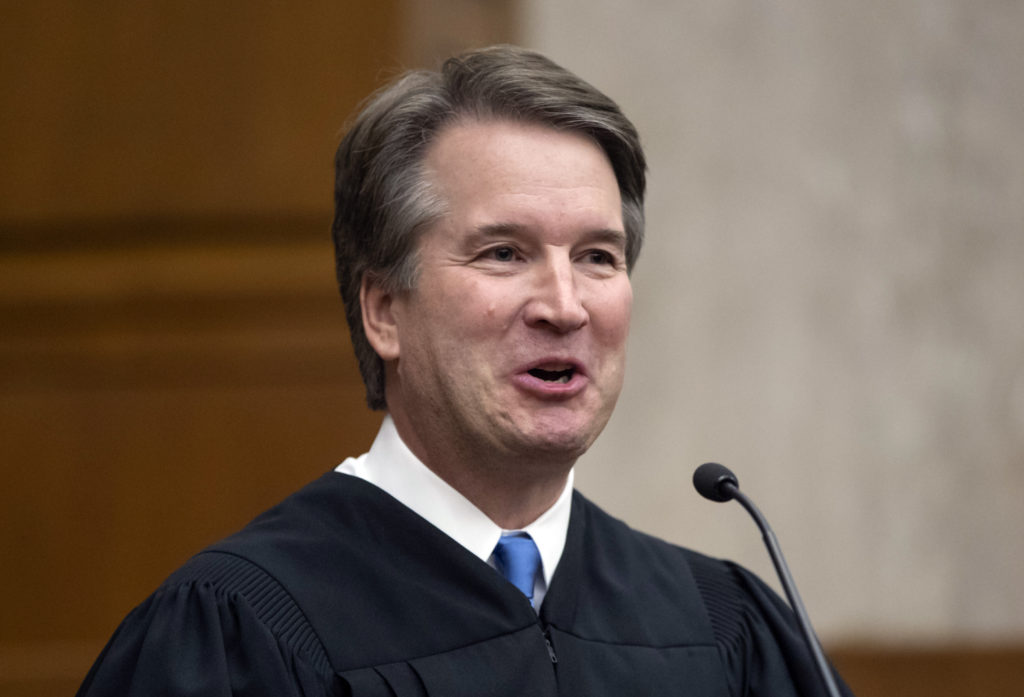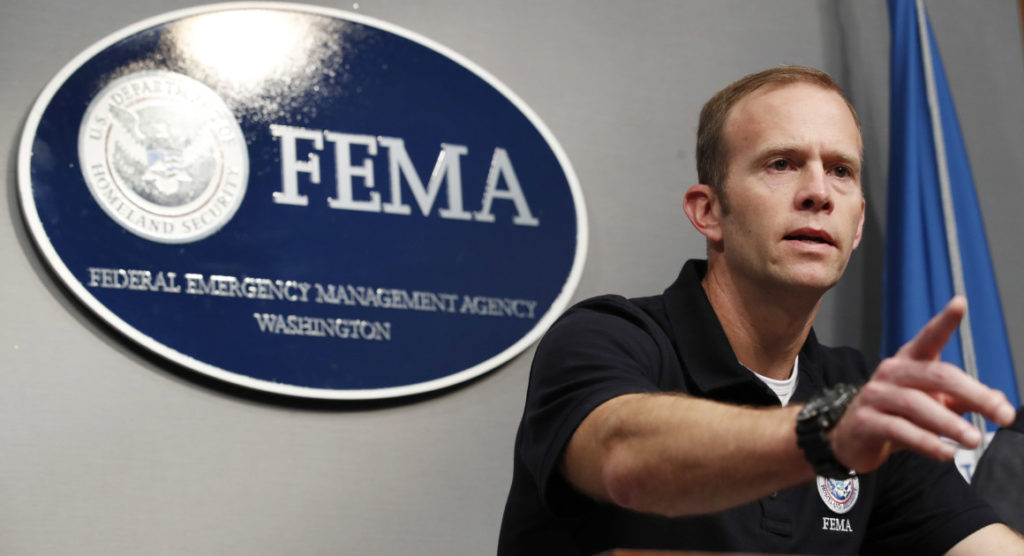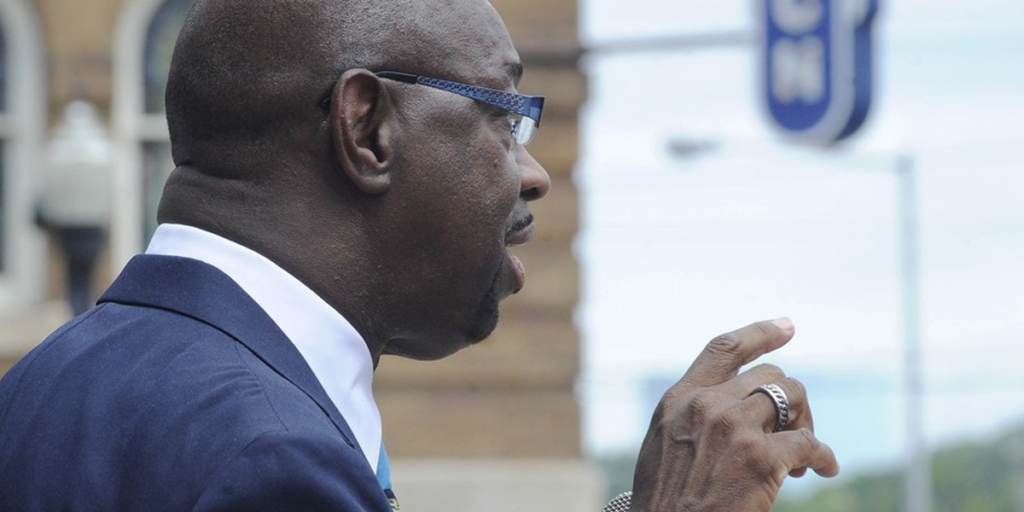Judge rules Cullman County’s bail system illegally discriminates against the poor

People who fall victim to what many deem a “two-tiered” system of justice that’s based on wealth, won a significant victory in Cullman County, Ala. on Thursday when a federal court judge ruled that the practice of jailing those who cannot afford cash bail is unconstitutional. U.S. District Court Judge Madeline Haikala entered a preliminary injunction order that prohibits Cullman County from continuing to discriminate against the poor through its bail system, which many deem a “two-tiered” system of justice that’s based on wealth. Her decision follows a memorandum opinion entered last week explaining why the county’s practices were illegal. As the Court explained, “Cullman County’s discriminatory bail practices deprive indigent criminal defendants in Cullman County of equal protection of the law” and its justifications for using a bail schedule are “illusory and conspicuously arbitrary.” This preliminary injunction will remain in effect while the lawsuit challenging the practice is fully resolved and permanent relief is ordered. The suit was brought by the Southern Poverty Law Center(SPLC), Civil Rights Corps, the American Civil Liberties Union (ACLU) and the American Civil Liberties Union of Alabama on behalf of Bradley Hester, who was held on a $1,000 bond he could not afford. “Today was a big win for all Cullman County residents because no longer will the county be allowed to treat residents with means differently than those without in our criminal justice system,” said Sam Brooke, deputy legal director, the Southern Poverty Law Center. “Jails are not meant to warehouse people who have not been convicted of a crime, particularly where, as here, the rich are able to buy their freedom and impoverished people are left to languish in jail. This form of wealth-based discrimination that keeps people in jail just because they cannot afford their freedom is unconstitutional. We will continue to fight to eliminate wealth-based justice.” Katherine Hubbard, attorney, Civil Rights Corps, says most municipal courts have already moved away from cash. bail. “Today’s decision affirms that progress, and encourages more, recognizing that our district and circuit courts still have a long way to go,” she said. “We look forward to working with the county officials to ensure their new practices comply with the preliminary injunction order, and we will continue our litigation against Cullman County until permanent relief is implemented.” “The federal court’s decision today acknowledges what policy makers, advocates, and state courts across the country are recognizing: that locking people up simply based on poverty is unacceptable, and that a just bail system must provide robust protections to ensure that those presumed innocent are released pretrial, while only the most severe cases will require detention,” added Brock Boone, staff attorney, ACLU of Alabama. Brock continued, “Cullman County is in many ways typical of courts across Alabama. Far too often, its bail system results in people being locked away pretrial simply because they could not pay. Courts throughout Alabama, and the country, are setting bail above what people can pay, without any protections to ensure that this draconian penalty is used only when absolutely necessary.” Others moving away from cash bail Last month, California became the first state to fully abolish cash bail, a step backers said would create a more equitable criminal justice system, that’s not as dependent on a person’s wealth. “Several U.S. cities and states have in recent years reduced their reliance on bail, arguing the system unfairly confines poor people, creating overcrowded jails and extra costs for taxpayers,” the Wall Street Journal reported. Those who have been accused of crimes will instead be assessed, released on their own recognizance, given conditions for their release (GPS trackers, placed on house arrest) or held in jail.
Airbus kicks off construction on Flight Works Alabama education center

Flight Works Alabama, a new aviation experience center near Airbus’ manufacturing facility in Mobile, is ready to begin its take off. Alabama Gov. Kay Ivey joined Airbus executives, city and county leaders from Mobile, and industry and educational partners in breaking ground for the hands-on instructional facility. In May 2017, Ivey announced plans to build the center, with a goal to bolster Alabama’s workforce development efforts and inspire young people to pursue careers in aerospace. Wednesday’s event officially launched construction of the facility, which is due to open in late 2019. “Success for Airbus, and any company, means we can’t just look at what we’re doing now; we need to look at what we need later — whether it be next year, next decade or the next five decades,” Airbus Americas Chairman and CEO Jeff Knittel said during the ceremony. “What Airbus and other companies in our industry need to be successful in the future is a skilled, knowledgeable workforce that is ready for that future. Flight Works will help us create that workforce in a fun, creative way,” he said. Exploring opportunities Flight Works Alabama will be an 18,000-square-foot experience center housing a large interactive exhibition area, classrooms, a collaboration room, a workshop, a restaurant and a gift shop. Situated near the campus of Airbus’ aircraft manufacturing facility at the Mobile Aeroplex at Brookley, the center will also be a gateway for public tours of Airbus’ A320 family assembly line. “Aerospace is a premier industry, filled with innovative developments and high-demand jobs, which are sought after by every state,” Ivey said. “Flight Works Alabama will become a hub to explore the opportunities of this industry. “As our state continues to grow this sector, we must show Alabamians all that the aerospace industry can offer them, today and in the years ahead,” she said. In addition to the experience center, the facility will host educational opportunities for adults seeking new or expanded skills in the industry. Nine education partners have signed on to provide these opportunities. They are Auburn University, Bishop State Community College, Coastal Alabama Community College, Embry-Riddle Aeronautical University, Troy University, Tuskegee University, University of South Alabama, University of Alabama and University of West Alabama. Industry and community sponsors for the project were also named at the ceremony, including the Airbus Foundation, Alabama Power Foundation, Conde Systems, the Mobile County Commission, Mott MacDonald, Hoar Program Management, Johnson Controls, Mech-Net, Pratt & Whitney, Safran and Snap-On. Airbus said other sponsorships are in development. Airbus launched production of A320 Family aircraft at the Mobile manufacturing facility in 2015. The $600 million complex now produces four aircraft a month and employs more than 400 people. This story originally appeared on the Alabama Department of Commerce’s Made in Alabama website. Republished with permission from the Alabama NewsCenter.
Republicans brush aside Dems’ effort to delay Brett Kavanaugh vote

Republicans on the Senate Judiciary Committee brushed aside a flurry of Democratic attempts to delay the consideration of Supreme Court nominee Brett Kavanaugh on Thursday, sticking with a schedule that could see him confirmed by Oct. 1. Democratic Sen. Richard Blumenthal of Connecticut protested as soon as the hearing gaveled opened Thursday. He says the nomination will be “tainted” and “stained” by the unusual process for vetting the nominee. “We lack the time. We lack the documents.” He called it a “badly broken process.” The committee’s top Democrat, Sen. Dianne Feinstein of California, sought a subpoena for documents from Kavanaugh’s time as Bush’s staff secretary. She said Thursday senators “should be able to see this record” and wondered, “What in Judge Kavanaugh’s records are Republicans hiding?” The Republicans have declined to pursue Kavanaugh’s staff secretary documents, saying it would be too cumbersome. They rejected Feinstein’s motion and several others, including motions to subpoena documents and witnesses and a motion to adjourn. Chairman Chuck Grassley set the panel’s vote on President Donald Trump’s nominee for Sept. 20. Republicans hope to confirm Kavanaugh by the start of the new court session Oct. 1. New documents released ahead of Thursday’s hearing included Kavanaugh’s 263-page written response to questions from senators, along with dozens of files from the judge’s work in the George W. Bush White House that had been available to senators only on a “committee confidential basis.” Democratic Sen. Cory Booker of New Jersey made the Bush documents public. In new written responses released late Wednesday, Kavanaugh says he would have shaken the hand of a school shooting victim’s father during a break in last week’s Senate hearing had he recognized him before being whisked away by security detail. Kavanaugh’s explanation for the encounter with Fred Guttenberg— captured in an Associated Press photo that went viral on social media — was among a 263-page response to written questions from senators on a range of issues including abortion, executive power and his personal finances. Kavanaugh wrote that he assumed the man who approached him, introduced himself, “and touched my arm” during a break at the Senate Judiciary Committee proceedings had been one of the many protesters in the hearing room. Guttenberg’s 14-year-old daughter, Jaime, was among 17 people killed on Feb. 14 at Stoneman Douglas High School in Florida. “It had been a chaotic morning,” Kavanaugh wrote. “I unfortunately did not realize that the man was the father of a shooting victim from Parkland, Florida. Mr. Guttenberg has suffered an incalculable loss. If I had known who he was, I would have shaken his hand, talked to him, and expressed my sympathy. And I would have listened to him.” Kavanaugh’s security detail ushered him out in a “split second,” according to the judge’s response to a written question from Grassley. It was among 1,287 questions from senators, almost all from Democrats. Pressed by Blumenthal if he had asked police to intervene, Kavanaugh wrote, “No.” Guttenberg responded on Twitter saying the judge’s response was “not accurate.” He described introducing himself to Kavanagh during the encounter. The gun safety advocate said he was glad Kavanaugh responded in writing, “but I now make the choice not to believe in the sincerity of the response.” Democrats don’t have the votes to block Kavanaugh’s nomination, if Republicans hold unified, but are fighting it and decrying the process that Republicans used to compile his government records for review. In releasing a new batch of committee confidential documents about Kavanaugh, Booker, the New Jersey Democrat, was repeating a tactic that could prompt a review from the Senate Ethics Committee. The 28 new “committee confidential” documents are from Kavanaugh’s time in the White House counsel’s office during the George W. Bush administration and show his involvement in judicial nominations, including for some of the more controversial judges of the era. Booker is being criticized by his GOP colleagues and outside groups for releasing the documents. Last week, he released some documents that were later made public by the committee, but also others that weren’t. Wednesday’s disclosure brings the total to 75. The conservative group Judicial Watch delivered a letter Wednesday to the Senate Ethics Committee seeking an investigation. It says Booker violated Senate rules against disclosing confidential documents and could face Senate expulsion. Booker has welcomed the fight. He says the documents about Kavanaugh’s work “raise more serious and concerning questions” about his honesty during his testimony before the committee. The documents show Kavanaugh’s involvement in Bush’s nomination of Charles Pickering to an appellate court in the South amid questions about his views on race relations. Kavanaugh had indicated he was not substantially involved in the nomination. At issue has been the unprecedented process the Senate Judiciary Committee used for gathering documents on Kavanaugh, an appellate court judge who is President Donald Trump’s nominee to replace retired Justice Anthony Kennedy on the court. The committee was hoping to quickly process Kavanaugh’s unusually long paper trail and relied on Bush’s lawyer, Bill Burck, to compile the documents, first estimated to be 900,000 pages from Kavanaugh’s time in the counsel’s office. Eventually, some 267,000 pages were made public and 174,000 were held as committee confidential. Republished with permission from the Associated Press.
Former Alabama leader, FEMA Director Brock Long under investigation for misuse of official cars

As Hurricane Florence bears down on the East Coast, with tropical storm-force blasting the shoreline, the government’s lead disaster official is under an internal investigation for his alleged misuse of government cars, POLITICO reports. The former Alabama Alabama Emergency Management Agency (AEMA) director, and current director of the Federal Emergency Management Agency (FEMA) Brock Long is being investigated by the Department of Homeland Security (DHS) inspector general (IG) as to whether or not he misused government vehicles and personnel during six-hour commutes from his home in North Carolina and FEMA headquarters in Washington, D.C. According to POLITICO, “Long started using a staff driver to get him home to North Carolina at the beginning of his tenure at FEMA last year. On the weekends Long spent in North Carolina, aides were put up in a hotel at taxpayer expense, according to one of the current officials.” Long briefly addressed the investigation during a Thursday FEMA briefing. “Bottom line is, we’ll continue to fully cooperate with any investigation that goes on and own up to any mistakes and push forward and keep going,” he said. “I would never intentionally run a program incorrectly,“ Long added. “Doing something unethical is not part of my DNA and it is not part of my track record in my whole entire career. We will work with the OIG.” Jessica Nalepa, FEMA director of external affairs, also responded to the investigation saying FEMA “fully cooperates with all investigations conducted by the DHS OIG.” “Administrator Long and the FEMA workforce are focused on preparing for, responding to, and recovering from Hurricane Florence and other active tropical systems,” Nalepa tweeted in response to the POLITICO report. “Having worked directly with him for over a year, I know administrator Long to be an experienced and respected emergency manager.” “All questions about any potential investigation by the Office of the Inspector General should be directed to the IG. At this time, we are fully focused on preparing for, responding to, and recovering from Hurricane Florence and the storms in the Pacific,” DHS press secretary Tyler Houlton added to POLITICO in a statement. From 2008 to 2011 Long served was at the helm of the AEMA where he worked on the Yellowhammer State’s response to the Deepwater Horizon oil spill and numerous other natural disasters. As Director, he served as the State Coordinating Officer for 14 disasters, including eight presidentially-declared events. Prior to that he was a FEMA Regional Hurricane Program Manager from 2001 to 2006.
NAACP suspends Hezekiah Jackson, Birmingham metro president pending investigation

The national office of the National Association for the Advancement of Colored People (NAACP) — the nation’s foremost civil rights organization — announced Wednesday the suspension of NAACP Metro-Birmingham Branch President Hezekiah Jackson pending an investigation into allegations that he advised homeowners not to have their soil tested by the EPA for potentially deadly toxins, and that he accepted cash payments for engaging in this activity. On Sept. 7, NAACP President and CEO Derrick Johnson issued a letter to Jackson notifying him that his membership in the NAACP and his leadership of the Branch were being immediately suspended. According to the national organization, Jackson was directed to immediately cease holding himself out as a member of the Association and as President of the Branch. Jackson released a statement Wednesday night in response to the claims: After 20 years as a Black openly gay president of the Metro Birmingham NAACP and Chief Volunteer Officer, I have had to navigate the hostile waters of Sexual Orientation Discrimination for most of my life. I welcome the opportunity for a full hearing on this matter for which I expect to be fully exonerated. No one has produced any proof of my emphatically saying to anyone “DO NOT HAVE YOUR SOIL TESTED” or me being compensated in cash or otherwise to which I testified under oath before the Grand Jury in July, 2017. Once I receive the notice I will answer and allow the due process to run it’s course; however, in the meantime I will remain at 1520 4th Ave. No. Birmingham, Alabama (former home to the NAACP) as my launching location for my new organization “Better Environment and Mo Justice” and to complete my memoirs, “To Kill the Bold Black Gay Boi” (A TELL ALL). I will turn my attention to unimpeded empowerment for myself and my people. I am at perfect peace and thank all those who have stood with me over the years and those who continue to do so. Jackson claims he has not received a letter from the NAACP regarding his suspension.
Donald Trump rejects Puerto Rico hurricane death toll, blames Dems

President Donald Trump on Thursday rejected the widely accepted conclusion that nearly 3,000 died in Puerto Rico from Hurricane Maria, arguing without evidence that the number was wrong and calling it a plot by Democrats to make him look bad. As Hurricane Florence approached the Carolinas, the president picked a fresh fight over the administration’s response in Puerto Rico, tweeting: “When I left the Island, AFTER the storm had hit, they had anywhere from 6 to 18 deaths. As time went by it did not go up by much. Then, a long time later, they started to report really large numbers, like 3000.” 3000 people did not die in the two hurricanes that hit Puerto Rico. When I left the Island, AFTER the storm had hit, they had anywhere from 6 to 18 deaths. As time went by it did not go up by much. Then, a long time later, they started to report really large numbers, like 3000… — Donald J. Trump (@realDonaldTrump) September 13, 2018 Trump added: “This was done by the Democrats in order to make me look as bad as possible when I was successfully raising Billions of Dollars to help rebuild Puerto Rico.” …..This was done by the Democrats in order to make me look as bad as possible when I was successfully raising Billions of Dollars to help rebuild Puerto Rico. If a person died for any reason, like old age, just add them onto the list. Bad politics. I love Puerto Rico! — Donald J. Trump (@realDonaldTrump) September 13, 2018 Puerto Rico’s governor last month raised the U.S. territory’s official death toll from Hurricane Maria from 64 to 2,975 after an independent study found that the number of people who succumbed in the sweltering aftermath had been severely undercounted. The estimate of nearly 3,000 dead in the six months after Maria devastated the island in September 2017 and knocked out the entire electrical grid was made by researchers with the Milken Institute School of Public Health at George Washington University. The study says the original estimates were so low because doctors on the island had not been trained to properly classify deaths after a natural disaster. The elderly and impoverished were hardest hit by the hurricane. Republished with permission from the Associated Press.
Yes, corporal punishment is still legal in most Alabama schools

A school in neighboring Georgia has gained the national spotlight after announcing it is bringing back a controversial form of corporal punishment for students who misbehave: paddling. “There was a time when corporal punishment was kind of the norm in school and you didn’t have the problems you have (now),” said the superintendent at the Georgia School for Innovation and the Classics in Hephzibah where paddled has just been given the green-light once more, Jody Boulineau. What many Alabamians may not know is that paddling is legal in their state too. In 1995, the state Legislature passed a law — found in Section 16-1-24.1 of the Alabama Code that permits the use of corporal punishment in public schools, but directs local school boards to adopt their own codes of conduct and disciplinary procedures. The statute, however, is pretty vague but it does prohibit any “excessive force or cruel and unusual punishment.” (g) Except in the case of excessive force or cruel and unusual punishment, no certified or non-certified employee of the State Board of Education or any local board of education shall be civilly liable for any action carried out in conformity with state law and system or school rules regarding the control, discipline, suspension, and expulsion of students. According to the most recent available data from the U.S. Department of Education’s Office for Civil Rights in Sept. 2016, 107 out of 133 school districts in Alabama exercised physical force on its students during the 2013-2014 school year. The translated to nearly 19,000 Alabama students being paddled that year. Examples of corporal punishment policies in Alabama Alexander City Schools: shall consist of no more than three (3) licks administered to the buttocks with a smooth surface paddle free of holes and/or cracks. Autagua County School System: shall not be administered in the presence of other students and shall not include more than three (3) licks to the buttocks. Refusal to be paddled can result in suspension or expulsion. Dothan City Schools: The principal of a school is vested by the Code of Alabama with the authority to administer corporal punishment in conformance with the policy of the Dothan City Board of Education. But just because it’s still allowed doesn’t mean everyone is still on board with it. Mobile County Public Schools, Mountain Brook Schools, and Talladega City Schools. are among a few school systems who have outright banned the practice in their districts. Further, following the release of statistics of the U.S. Department of Education, the Alabama Association of School Boards voted to change the group’s position from “discouraging” paddling of students to “prohibiting” the act in in December 2016. Nevertheless, the vote doesn’t have any teeth to it – it was merely an official position statement that is not legally enforceable, and the issue has not been a legislative priority of the state legislature.


